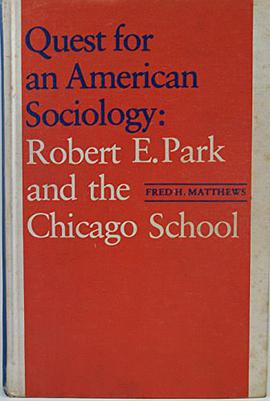

Robert E. Park was a key figure in the development of the 'Chicago school' which played a dominant role in the evolution of American sociology in the inter-war years. This biographical study deals in depth with Park's life before his appointment to the University of Chicago in 1913, and investigates the personal and intellectual influences that formed the independent nature and well-stocked mind he brought to the academic world. A decade of work as a newspaper reporter and several years spent at Tuskegee as writer and publicist for Booker T. Washington helped shape what were to become the main foci of his sociological interests: the modern city and the interaction of its varied races and cultures.
Park saw the city as the ideal laboratory for studying the effects of evolutionary change on human nature and social organization. In both his teaching and his writing his consuming interest was the examination, not of institutions, but of such processes as social interaction, competition, accommodation, and assimilation. He brought the same perspective to the study of race relations, and was a pioneer in the investigation of ethnic prejudice as a product of intergroup competition rather than of innate group character.
Park's reverence for the complexity and persistence of the processes he studied inclined him to a certain skepticism about the possibility of engineered social change, and this brought him under attack from younger scholars in the 1940s. Professor Matthews suggests here that Park's tough-minded conflict theory of social change, like his stress on the social molding of personality, has proved to be of greater prophetic value than his detractors admit.
具体描述
读后感
评分
评分
评分
评分
用户评价
相关图书
本站所有内容均为互联网搜索引擎提供的公开搜索信息,本站不存储任何数据与内容,任何内容与数据均与本站无关,如有需要请联系相关搜索引擎包括但不限于百度,google,bing,sogou 等
© 2025 book.wenda123.org All Rights Reserved. 图书目录大全 版权所有




















